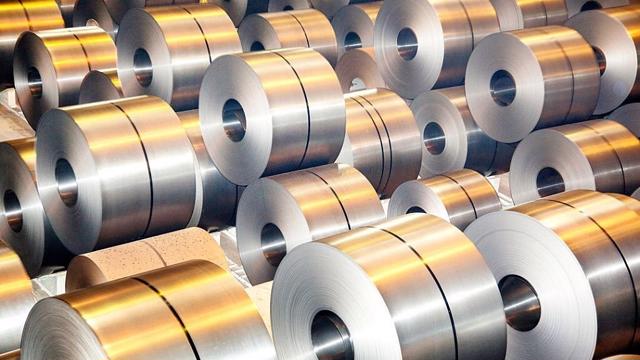[ad_1]
The Trade Remedies Administration (Ministry of Industry and Commerce) announced that the Foreign Trade Enforcement Agency (UPCI) of Mexico’s Ministry of Economy recently released the final conclusion in the case of an anti-dumping investigation (CBPG) involving galvanized steel. imported from Vietnam, after which the tax rate is reduced compared to the provisional conclusion.
The procedure was initiated by Mexico at the end of August 2021 on the basis of a lawsuit by the domestic industry. On September 14, 2022, UPCI published preliminary conclusions with the anti-dumping tax rate for galvanized steel imported from Vietnam from 0% to 12.34%.
In conclusion, UPCI continues to assess that the Vietnamese steel industry operates under the market mechanism, and therefore decided to use the data provided by Vietnamese companies for the calculation, which helped reduce the tax to zero% – 10.84%. During the course of the case, the Ministry of Industry and Trade has been closely coordinating with the Vietnamese Embassy in Mexico through various channels to express their views and has suggested that Mexico should not apply unfavorable calculation methods to Vietnamese export companies.
Since Vietnamese products enjoy a preferential tax rate of 0% under the Comprehensive and Progressive Agreement for Trans-Pacific Partnership (CPTPP) commitments when exported to Mexico, Mexico is an export market for new but very potential galvanized steel Vietnam and is the main market for it Article in America.
Therefore, in the final conclusion, the tax reduction by UPCI helps Vietnamese steel companies to remain competitive and export to Mexico. This tax rate is also considered to be relatively low compared to the tax rate applied by Mexico in particular to steel products and other products in general in anti-dumping investigations initiated by Mexico.
According to the International Trade Center ITC (Trademap.org), Vietnam exported around USD 170 million of examined products to Mexico during the investigation period (2020). In 2021, Vietnam’s export value will more than double to around US$370 million.
As a result of the above incident, steel industry experts noted that the global trade situation has become more difficult and the protectionism of many countries has led to more and more trade measures (anti-dumping, anti-subsidies, etc.) as an inevitable trend.
For this reason, exporters need to familiarize themselves with the legal regulations and trade defense investigation practices of the importing countries, especially the key markets. At the same time, regularly update the Trade Remedies Administration’s early warning information to suggest an appropriate export strategy for each period.
In addition, establishment of information channels with partners, associations and industries in order to promptly update and process any legal disputes and situations that arise; Diversification of products and markets, avoiding excessive export growth in a market, especially in markets that frequently use trade defense measures or have filed anti-dumping lawsuits against their exports.
In the event of an investigation or lawsuit, companies should cooperate fully and provide information and documents upon request of foreign investigating authorities. At the same time, companies need to coordinate closely with the trade defense department to respond to the case for timely guidance and support.
[ad_2]
Source link

